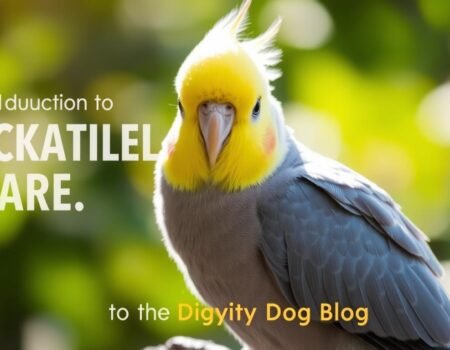Did you know that the cost of medical treatment for birds can be just as expensive as it is for cats and dogs? That’s right – our feathered friends also require proper healthcare and protection. Whether you own an exotic bird or a bird of prey, having avian insurance can make all the difference in ensuring their well-being.
Key Takeaways:
- Birds insurance provides coverage for the medical treatment of birds, similar to what is offered for cats and dogs.
- Exotic birds and birds of prey face unique health risks and can require specialized care.
- There are different types of insurance policies available, including accident-only, illness, and comprehensive coverage.
- Factors such as species, breed, age, and health status influence the cost of bird insurance.
- Choosing the right insurance for your bird is crucial for their well-being and your peace of mind.
Why Birds Insurance is Important for Exotic Birds
Exotic birds, such as parrots and macaws, require specialized care and are prone to unique health risks. These magnificent creatures bring joy and beauty to our lives, but it’s crucial to understand the specific challenges they face when it comes to their health. Just like any other pet, exotic birds can experience illnesses and injuries that require veterinary attention, but their care can often come with a hefty price tag.
Exotic bird insurance provides financial protection against unexpected medical expenses, allowing bird owners to provide the best care for their feathered friends. With insurance coverage, you can have peace of mind knowing that you won’t have to compromise your exotic bird’s health due to the costs involved.
“The cost of veterinary care for exotic birds can be surprisingly high, especially since they often require specialized treatment and medications. Exotic bird insurance helps alleviate the financial burden, ensuring that owners can afford the care their birds need.”
Unique Health Risks and Veterinary Care Costs
Exotic birds face a range of unique health risks that necessitate proper care and attention. Avian veterinarians often diagnose these birds with respiratory infections, nutritional deficiencies, and beak and feather diseases, among other conditions. Treating these health issues can be complex and costly.
Additionally, exotic bird owners may encounter unexpected accidents or emergencies that require immediate medical attention. All these factors contribute to higher veterinary care costs compared to common household pets.
| Health Risks | Veterinary Care Costs |
|---|---|
|
|
Types of Pet Insurance for Exotic Birds
When it comes to insuring your exotic bird, there are three main types of insurance coverage options to consider: accident-only policies, illness policies, and comprehensive policies. Each type offers different levels of coverage to meet the specific needs of your feathered friend.
1. Accident-Only Policies
Accident-only policies provide coverage for injuries resulting from accidents. This type of policy is ideal if you are primarily concerned about sudden accidents such as falls, collisions, or injuries caused by environmental hazards. It offers financial protection in case of unexpected accidents and can help cover the costs of emergency medical treatments.
2. Illness Policies
Illness policies are designed to cover medical conditions that your exotic bird may encounter. These policies typically include coverage for common illnesses such as respiratory infections, digestive issues, or parasites. With an illness policy, you can ensure that your bird receives essential medical care when they fall ill, minimizing the financial burden on you as the owner.
3. Comprehensive Policies
Comprehensive policies provide the most extensive coverage for your exotic bird. They encompass both accidents and illnesses, offering a comprehensive solution for all potential veterinary needs. This type of policy not only covers emergency treatments but also includes preventative care such as vaccinations, check-ups, and routine medical examinations. Comprehensive policies provide a holistic approach to your bird’s health and well-being.
Ultimately, the choice between accident-only, illness, or comprehensive policies depends on your bird’s specific needs and your budget. Consider factors such as your bird’s breed, age, and health status, as well as the risks they may face in their environment. Consulting with a reputable avian insurance provider can help you determine the best policy to ensure the health and safety of your exotic bird.
Factors to Consider When Choosing Exotic Bird Insurance
When selecting exotic bird insurance, several factors should be taken into consideration to ensure you choose the right policy for your feathered friend. These factors include coverage limits, deductibles, exclusions, and waiting periods.
- Coverage Limits: It is important to assess the coverage limits offered by different insurance providers. Ensure that the coverage provided is sufficient to meet your bird’s potential medical needs. Consider any pre-existing conditions your bird may have and whether they are covered under the policy.
- Deductibles: Deductibles are the amount you are required to pay out of pocket before the insurance coverage kicks in. Consider both the premium cost and the deductible amount to determine the most suitable policy for your budget. Higher deductibles may result in lower premiums, but you’ll need to be prepared to cover a larger portion of veterinary expenses.
- Exclusions: Exclusions are specific conditions or treatments that are not covered by the insurance policy. It is essential to review the list of exclusions to ensure that any potential health issues your bird may encounter are covered. Be aware of any breed-specific exclusions that may limit coverage for certain types of birds.
- Waiting Periods: Waiting periods determine when the insurance coverage becomes effective. Some policies require a waiting period before coverage begins, while others have no waiting period at all. Consider the waiting period length and choose a policy that aligns with your bird’s immediate medical needs.
By carefully reviewing these factors, you can make an informed decision when selecting exotic bird insurance. This ensures that you choose a policy that provides adequate coverage and meets the specific needs of your feathered companion.
Continue reading to learn more about the unique care requirements and insurance options for birds of prey.
Understanding the Need for Bird of Prey Insurance
Birds of prey, such as falcons, hawks, and eagles, require specialized care and face unique risks. These magnificent creatures are often involved in hunting and training exercises, which can result in injuries such as sprains and fractures. Accidents during these activities can lead to collisions or crashes, causing further harm to the birds. Additionally, birds of prey are susceptible to diseases and infections, which require immediate medical attention and ongoing treatment.
Insurance coverage is essential to mitigate the financial burden of caring for injured or sick birds of prey and provide peace of mind to owners.
To illustrate the importance of bird of prey insurance, consider the following scenarios:
A falcon, during a training session, collides with a tree, resulting in a fractured wing. The bird requires immediate medical attention and rehabilitation to ensure a successful recovery.
A hawk, while hunting, sustains a sprained foot after a failed landing. The injury requires specialized care, including immobilization and medication, for proper healing.
An eagle, kept in an aviary, develops a severe respiratory infection that could potentially be fatal if left untreated. The bird requires extensive medical treatment and ongoing monitoring to ensure a full recovery.
| Risks for Birds of Prey | Specialized Care Needed |
|---|---|
| Hunting and training injuries (sprains, fractures) | Avian veterinarian consultations |
| Accidents during hunting or training (collisions, crashes) | Diagnostic tests and imaging |
| Diseases and infections | Medications and treatments |
As shown in the table above, birds of prey face unique risks related to their activities and environment. The specialized care they require involves avian veterinarians, diagnostic tests, medications, and treatments. Ensuring that these magnificent birds receive prompt and appropriate medical attention can be a costly endeavor.
By obtaining bird of prey insurance coverage, owners can confidently provide the necessary care without the burden of overwhelming veterinary expenses. Insurance offers financial protection and peace of mind, allowing owners to focus on the well-being of their beloved birds.
Types of Pet Insurance for Birds of Prey
Insurance coverage for birds of prey comes in three main types: accident-only policies, illness policies, and comprehensive policies. Each type offers specific coverage tailored to the needs of these majestic avian creatures.
Accident-Only Policies
Accident-only policies are designed to provide coverage for injuries resulting from accidents. Whether it’s a hunting mishap or a training exercise gone wrong, this type of policy ensures that owners are financially protected in case of unexpected accidents. The coverage typically includes medical expenses related to accidents, such as fractures or sprains.
Illness Policies
Illness policies are focused on providing coverage for the various medical conditions that birds of prey may encounter. From respiratory infections to digestive issues, birds of prey are not immune to illnesses. By opting for an illness policy, owners can be confident that their feathered companions are covered when it comes to medical treatments for these conditions. This type of policy proves particularly beneficial when birds require ongoing treatment for chronic illnesses.
Comprehensive Policies
Comprehensive policies offer the most extensive coverage for birds of prey. They include both accident and illness coverage, ensuring that birds are protected in a range of circumstances. In addition to accidents and illnesses, comprehensive policies often cover preventative care, such as vaccinations and regular check-ups. This type of policy provides owners with peace of mind, knowing that their birds’ healthcare needs are comprehensively managed.
| Type of Insurance | Coverage | Benefit |
|---|---|---|
| Accident-Only Policies | Coverage for injuries resulting from accidents | Financial protection in case of unexpected accidents |
| Illness Policies | Coverage for medical conditions | Access to medical treatments for various illnesses |
| Comprehensive Policies | Coverage for accidents, illnesses, and preventative care | Complete healthcare protection for birds of prey |
Factors Influencing the Cost of Bird of Prey Insurance
The cost of bird of prey insurance is influenced by various factors that take into account the species and breed of the bird, the age and health status of the bird, as well as the location and lifestyle of the owner.
The species and breed of the bird can impact the price of the insurance policy. Certain breeds may be more prone to specific health conditions, requiring additional coverage and increasing the overall cost of insurance.
The age and health status of the bird also play a role in determining the cost of insurance. Older birds or those with pre-existing conditions may require more comprehensive coverage, resulting in higher premiums.
The location and lifestyle of the bird and its owner can impact insurance costs as well. Birds of prey residing in areas prone to hazards or engaging in high-risk activities like hunting may be subject to higher insurance rates due to the increased likelihood of injuries or accidents.
Understanding these factors is crucial in determining the cost of insurance for bird of prey and allows owners to make informed decisions when selecting an insurance policy that caters to their bird’s specific needs and aligns with their budget.
How to Choose the Right Insurance for Your Bird of Prey
When it comes to insuring your bird of prey, it is crucial to choose a reputable insurance company that specializes in bird of prey coverage. By selecting a provider with expertise in avian insurance, you can ensure that your feathered companion receives the best possible care.
As you explore different insurance options, it is important to evaluate the coverage choices available. Consider accident-only policies, which provide protection for injuries resulting from accidents. Illness policies are another option, offering coverage for medical conditions that may affect your bird of prey. If you desire more comprehensive coverage, you can opt for a policy that includes both accidents and illnesses, as well as preventative care.
However, it’s crucial to assess your bird’s specific needs and risks before finalizing an insurance plan. Factors such as age, breed, and health status should be taken into account, as they can impact the type and extent of coverage required. By analyzing these individual needs, you can choose a policy that provides tailored protection for your bird of prey.
Research and comparison are vital steps in finding the best insurance coverage for your feathered friend. Take the time to review different insurance providers, comparing their coverage options, pricing, and customer reviews. Additionally, consider reaching out to other bird of prey owners for recommendations and testimonials. By gathering comprehensive information and weighing the pros and cons of each insurance provider, you can make an informed decision that aligns with your bird’s needs and your budget.
| Reputable Insurance Companies for Bird of Prey | Coverage Options | Individual Needs |
|---|---|---|
| Nationwide | Accident-only policies | Young birds |
| Petplan | Illness policies | Elderly birds |
| Trupanion | Comprehensive policies | Birds with pre-existing conditions |
“Choosing the right insurance for your bird of prey is crucial to their health and well-being. By carefully considering reputable insurance companies, coverage options, and individual needs, you can provide the best possible protection and care for your feathered companion.” – Bird Insurance Specialist
The Benefits of Birds Insurance
Birds insurance provides an essential layer of financial protection for bird owners. By covering the cost of medical treatment, it ensures that your feathered friend receives the care they need without the worry of overwhelming veterinary expenses. With birds insurance, you can have peace of mind, knowing that you can provide the necessary medical attention to your bird, whether it’s a beloved pet or a valuable show bird.
But the benefits of birds insurance go beyond financial protection. Some insurance policies also offer additional benefits such as coverage for lost or stolen birds. Losing a bird can be a heartbreaking experience, but having coverage can help ease the financial burden of finding and recovering your feathered companion. Furthermore, certain insurance policies may provide liability protection, which can be crucial in case your bird accidentally injures someone or damages property.
By investing in birds insurance, you can focus on what truly matters – your bird’s well-being and the joy they bring to your life. The coverage ensures that you can provide the necessary care and medical attention, allowing you to build a strong bond with your unique pet. With financial protection, peace of mind, and additional benefits, birds insurance is a valuable investment for any bird owner.
FAQ
What is birds insurance?
Birds insurance provides coverage for the medical treatment of birds, similar to what is offered for cats and dogs.
Why is birds insurance important for exotic birds?
Exotic birds require specialized care and are prone to specific health issues. They face higher veterinary care costs compared to common household pets.
What types of pet insurance are available for exotic birds?
There are three main types of insurance coverage options for exotic birds: accident-only policies, illness policies, and comprehensive policies.
What factors should I consider when choosing exotic bird insurance?
You should consider coverage limits, deductibles, exclusions, and waiting periods when choosing exotic bird insurance.
Why do birds of prey need insurance?
Birds of prey require specialized care and face unique risks, including injuries, accidents, and diseases.
What types of pet insurance are available for birds of prey?
There are three main types of insurance coverage options for birds of prey: accident-only policies, illness policies, and comprehensive policies.
What factors influence the cost of bird of prey insurance?
The cost of bird of prey insurance is influenced by factors such as species and breed, age and health status, and location and lifestyle.
How do I choose the right insurance for my bird of prey?
When choosing insurance for your bird of prey, consider reputable insurance companies, coverage options, and your bird’s specific needs.
What are the benefits of birds insurance?
Birds insurance provides financial protection, peace of mind, and additional benefits such as coverage for lost or stolen birds or liability protection.











No Comment! Be the first one.